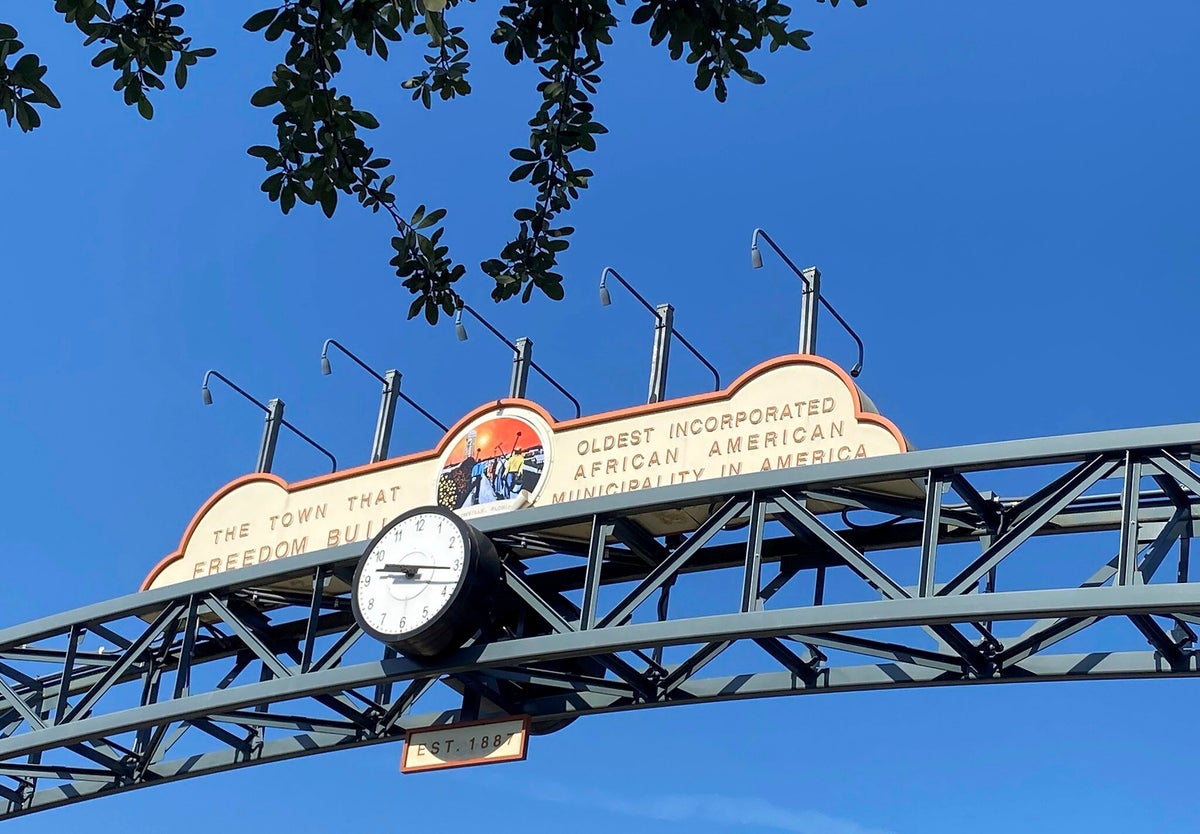
One of the first historically Black towns in the U.S. is suing the local school board to stop the sale of land that is tied up with Florida's legacy of racial segregation decades ago and the state's fast-paced growth nowadays.
An association dedicated to the preservation of the town of Eatonville's cultural history last Friday sued the Orange County School Board in an effort to stop the sale of the 100-acre property where the Robert Hungerford Preparatory High School once stood.
The proposed $14.6 million sale of the school property to a developer with plans to build 350 new new homes, along with and business spaces, threatens the cultural heritage of the town, the Association to Preserve the Eatonville Community said in its lawsuit. The sale is set to close on Friday.
With a population of around 2,350 people residents, of whom almost three-quarters are Black, the town located outside of Orlando is perhaps best known through the writings of Harlem Renaissance writer Zora Neale Hurston. Eatonville was the setting for one of her best known works, “Their Eyes Were Watching God.”
The association, along with other Eatonville residents, fear the sale of the property in a centrally-located part of fast-growing metro Orlando will increase traffic and price out longtime residents of the town, many whose families have lived there for generations.
"If this sale is allowed to proceed, the rich culture and heritage of the town that Zora Neale Hurston popularized around the world as ‘the first incorporated African American community in the United States’ will be erased,” said said N.Y. Nathiri, executive director of the association, which is being represented by the Southern Poverty Law Center.
The school board said in a statement that it couldn't comment on pending litigation.
Founded in 1887, Eatonville was among the early all-Black incorporated municipalities established in the decades after the end of slavery in the U.S. Around 1,200 Black towns or settlements were established in the late 19th century and early 20th century, according to the Historic Black Towns and Settlements Alliance.
The Hungerford school was established in 1897 for Black children facing an educational system that segregated them from white students. The Orange County School Board purchased the property from a trust in 1951 under a deed restriction that the school would continue to be used to educate Black children. Even after the U.S. Supreme Court desegregated the nation's schools in 1954, Orange County public schools remained segregated for years afterwards.
The school board was able to sell a portion of the property in 1974 after a circuit court lifted the deed restriction for that section of land. In the 2010s, the town of Eatonville, in cooperation with the school board, tried to have the deed restriction removed by suing the trust for a release so that the remaining land could be sold for commercial purposes during a period of time when Orlando was one of the fastest-growing metros in the U.S.
The parties reached several different settlements over the decade, but the association's lawsuit argues they are void since they either weren't court approved or didn't have the participation of all the required parties, including the Florida attorney general representing the public's interest.
Last year, Eatonville residents elected a new town mayor who opposes the proposed development. The trustees have no authority to lift the deed restriction, and any lifting of the restriction should either benefit Eatonville's youth or be used for educational purposes, according to the lawsuit.







